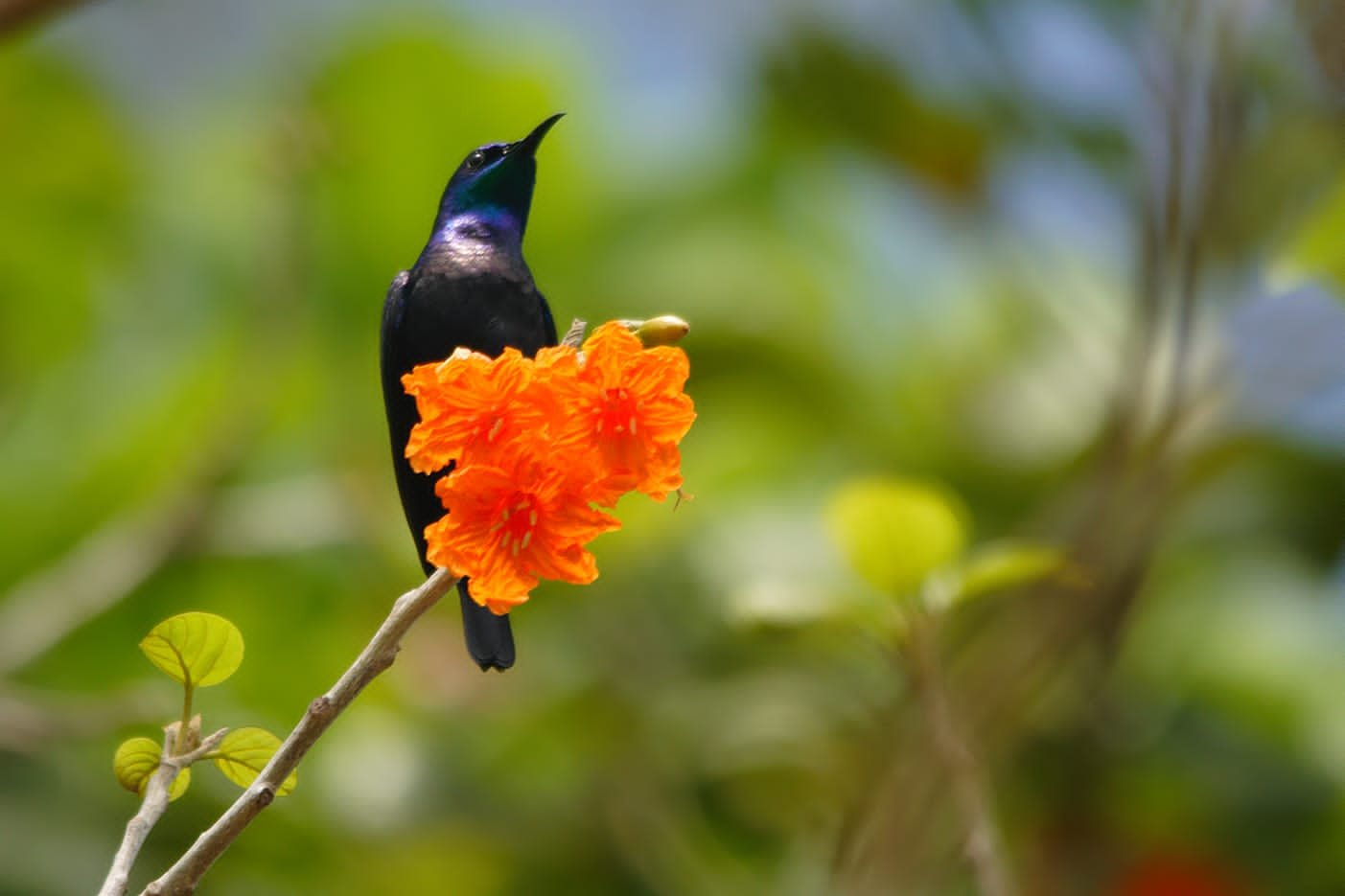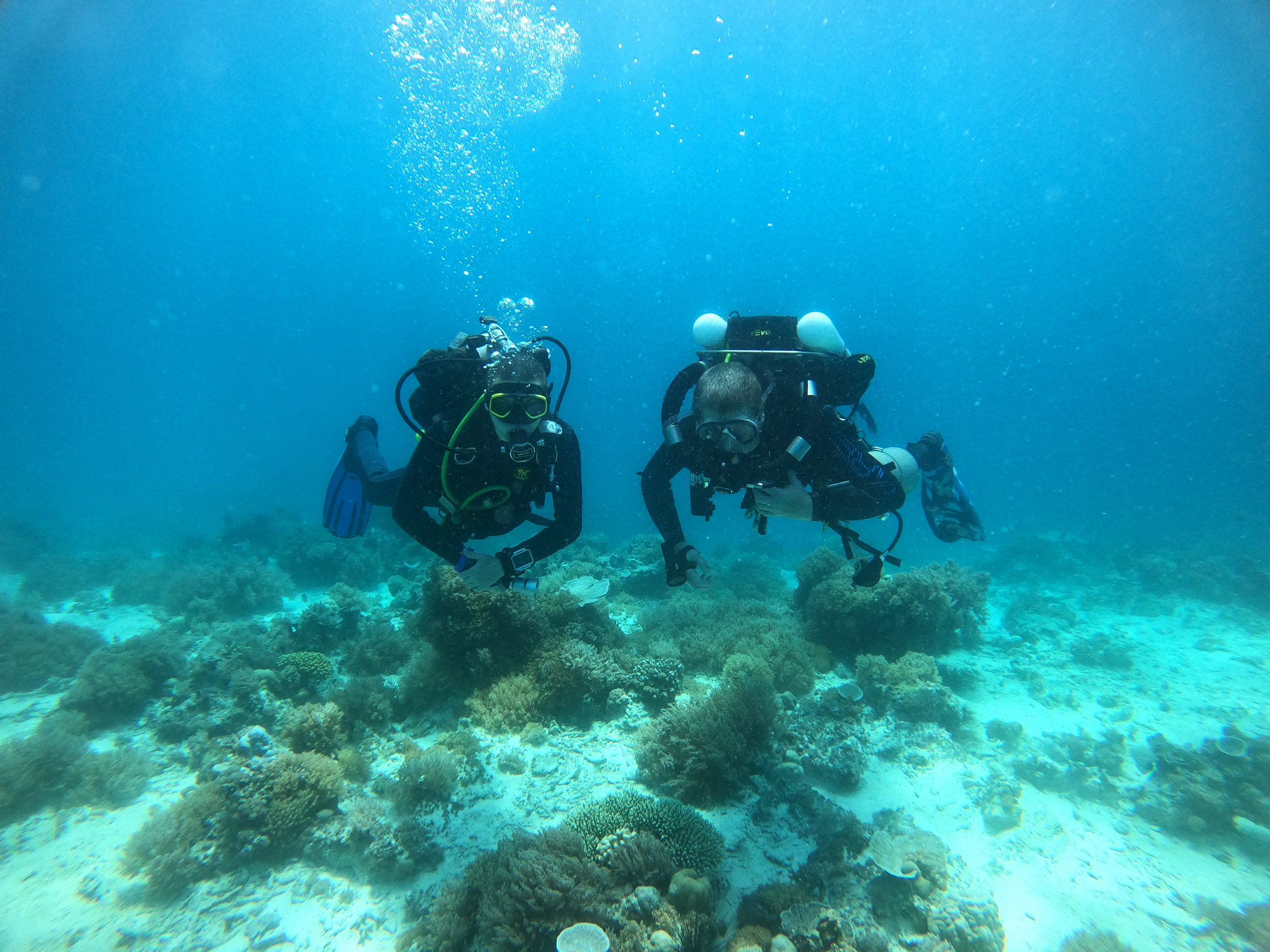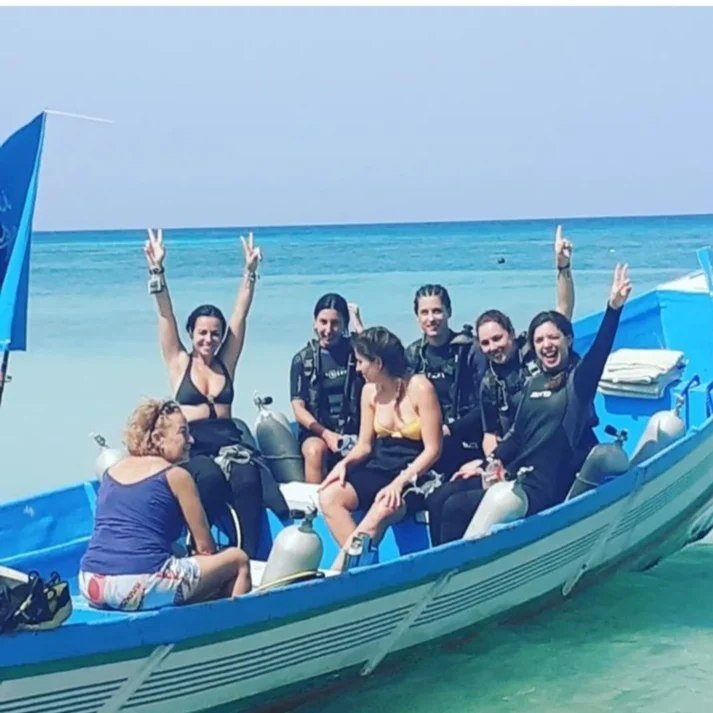Planning a trip to Africa in 10 Simple Steps
Africa, the land of captivating landscapes, diverse cultures, and abundant wildlife, beckons travelers from across the globe.
If you're planning your first-ever trip to Africa, prepare to be amazed by the continent's sheer beauty and endless possibilities for exploration.
People come to Africa to experience thrilling adventures, cultural immersion, or simply a chance to relax and reconnect with nature. Africa has it all. Africa is home.
The only way to guarantee a safe and unforgettable African experience is to plan right.
Let me guide you through 10 simple yet comprehensive steps to planning your African adventure.
In This Post...
- Define Your African Adventure Goals
- Choose Your African Destination
- Budget Wisely
- Time Your Trip Right
- Pick Your Accommodations
- Sort Out Transportation
- Obtain Necessary Travel Documents and Vaccinations
- Pack Appropriately
- Be Mindful of Wildlife Etiquette
- Embrace the Adventure and Stay Flexible
Step 1: Define Your African Adventure Goals
Before diving into the nitty-gritty, take a moment to reflect on what you want from your African experience.
Are you seeking wildlife encounters, beach experiences, exploring ancient craft, hiking trips, cultural immersion, or a mix of everything?
It’s important to know what you want, so you can pick not only the right location but also the right budget, equipment, agency, accommodation, and everything else that goes with it.
Your travel goals will guide your entire journey.
Step 2: Choose Your African Destination
Africa's vastness can be overwhelming. When most people think of Africa, they think of South Africa. But, there are 54 other beautiful countries and Islands that offer an abundance of nature.
Think about Tanzania and the Great Migration, Cameroon—Africa in miniature, Egypt and the Pyramids, Congo and the Leopards, Seychelles, and the world’s most stunning beaches, Zanzibar and scuba diving… The list is endless.
Consider your interests when choosing a country to visit.
For wildlife enthusiasts, Tanzania's Serengeti, Kenya's Maasai Mara, and South Africa's Kruger Park are iconic choices.
If cultural experiences are more your style, consider Morocco or Ghana.
For underwater pleasures like scuba diving or snorkeling, Zanzibar and Pemba Island Tanzania are top favorites.
If you’re into history and ancient exploration, Egypt welcomes you with its pyramids and more.
Seeking fun and memorable beach time deep in nature and away from the noise of Western troubles? Think about Islands off the coast of East Africa such as Madagascar or Seychelles.
Research each destination's highlights, climate, and entry requirements to align with your dreams.
Here’s our review of the top Islands in Africa for a vacation or honeymoon.
Step 3: Budget Wisely
Africa caters to all budgets. Daily costs can range from $50 for budget travelers to $500+ for luxury seekers.
I've seen travelers both overjoyed and disappointed based on how well they've managed their budgets. Be aware that the cost of safaris and other African travel activities can vary widely.
A budget-friendly camping experience might offer a raw and authentic connection with nature, while a luxurious lodge stay can elevate your comfort but at a higher cost.
Break down your budget into categories. Allocate funds for flights, accommodations, park fees, transportation within the country, and activities you plan to undertake.
Flights:
Look for affordable yet reliable airlines. Booking in advance often yields better deals. Consider flexible travel dates and explore nearby airports for potential savings.
Accommodations:
If you're on a tight budget, camping sites offer a unique and immersive experience. Mid-range options include comfortable lodges, while luxury lodges provide unparalleled comfort.
Research different accommodation styles and read reviews to find the best fit for your preferences.
Park Fees and Activities:
Research the entry fees for national parks and any additional costs for specific activities.
Whether it's a guided wildlife safari, scuba diving excursion, or cultural tour, factor in these expenses when planning your budget. Some parks offer package deals that include multiple activities.
Transportation within the Country:
Consider the cost of getting around within the country. Domestic flights might be necessary for long distances, while local buses or hired drivers could be more suitable for shorter journeys.
Compare prices and reliability to find the most cost-effective option.
Miscellaneous Expenses:
Don't forget to allocate funds for meals, souvenirs, and unexpected expenses. African markets offer unique and handmade items, so having a bit of extra cash for these cultural treasures can enhance your experience.
Tip: I found that allocating a buffer for unexpected expenses was crucial. Having some extra funds allowed me to fully embrace the richness of the journey.
Step 4: Time Your Trip Right
Find out when is the best time to visit your chosen country or Islands. Here in Africa, the weather will often dictate what activities you can do. So choose the right time for your preferred activities in your preferred location.
Here's a detailed breakdown to help you choose the perfect time for your trip:
Dry Season (June to October):
Ideal for safaris as animals gather around water sources, making wildlife easier to spot.
Comfortable temperatures and minimal rainfall enhance overall enjoyment.
Popular destinations during this season include the Serengeti, Kruger Park, and Maasai Mara.
Wet Season (November to May):
Lush landscapes and fewer tourists characterize this period.
Ideal for scuba diving at some of Africa’s top diving sites.
Birdwatching is exceptional as migratory species arrive.
Some areas might experience heavy rainfall, impacting road conditions.
Migratory Seasons:
Research specific destinations for migratory patterns, such as the Great Migration in the Serengeti.
Birthing seasons offer unique opportunities to witness adorable animal offspring.
Festival Seasons:
Consider cultural festivals and events happening during your visit for a deeper cultural immersion.
The lively atmosphere and vibrant celebrations add an extra layer to your experience.
Planning a trip to Tanzania? Here’s a detailed breakdown of the best times to visit Tanzania for specific activities: A month-by-month analysis.
Step 5: Pick Your Accommodations
I’ve always preferred a blend of comfort and exposure to nature/community and culture. In Africa, you’ll find resorts, hotels, and bungalows — at different prices.
I recommend accommodation right around the beach or really close to nature.
In my experience, picking the right accommodation is key to a comfortable and memorable journey.
Here's what to consider:
Lodges and Camps:
Luxury Lodges: If comfort is a priority, opt for luxury lodges that often come with stunning views, top-notch amenities, and personalized services.
Tented Camps: For a blend of comfort and the authentic safari experience, tented camps offer a unique stay amidst nature.
Budget-Friendly Campsites: Camping sites provide an immersive experience for those on a budget. Ensure they offer necessary facilities and are situated in safe areas.
Reviews and Recommendations:
Read online platforms like Facebook, TripAdvisor, or travel forums to read reviews from fellow travelers.
Consider recommendations from friends or travel groups to ensure you choose accommodations that align with your preferences.
Proximity to Activities:
Select accommodations close to the activities you have planned. This minimizes travel time and allows you to make the most of your stay.
If you’re visiting Tanzania, here’s a detailed look into all the resorts and hotels on Pemba Island.
Step 6: Sort Out Transportation
One thing’s for sure, most African roads are bumpy and tough to navigate. You’ll get used to that. You’ll need careful planning to navigate Africa's diverse landscapes.
Here's a comprehensive guide to arranging transportation:
Domestic Flights:
Research airlines that operate domestic flights within the country. Booking in advance often means better prices.
Consider flying during off-peak hours or on weekdays for potential savings.
Safari Vehicles and Guides:
If you're embarking on a safari or scuba diving trip, choose reputable tour operators that provide well-maintained vehicles, proper dive equipment, and experienced guides.
Ensure the vehicles have open roofs for optimal wildlife viewing and comfortable seating.
Ground Transportation:
For shorter distances, consider local buses, shared taxis, or hired drivers.
Research the reliability of transportation options, especially if you have tight schedules or connections.
Proximity to Activities:
Choose transportation options that align with your planned activities. For example, if you're exploring a national park, consider a 4x4 vehicle.
Tip: Having a knowledgeable guide was essential. Choose transportation options that offer experienced guides to enhance your understanding of the landscapes and wildlife.
Step 7: Obtain Necessary Travel Documents and Vaccinations
This is more like stating the obvious, but it’s worth reiterating how important it is to thoroughly research travel documents and vaccinations. Travel documentation in Africa is similar to anywhere else in the world.
Different countries have their own regulations. So look into what your target countries require.
Here's a comprehensive guide:
Passports and Visas:
Some countries offer visas on arrival, while others require advance applications. Consult the official embassy website for accurate and up-to-date information.
Park Permits:
If you're planning activities in national parks or reserves, check if permits are required. Some destinations have limited entry and may require advance booking.
Tip: For popular destinations, especially during peak seasons, secure park permits well in advance to avoid disappointment.
Health Precautions and Vaccinations:
Schedule a visit to your healthcare professional at least a few months before your trip. Discuss your travel plans and get advice on necessary vaccinations.
Common vaccinations for Africa include Yellow Fever, Hepatitis A and B, Typhoid, and Malaria prophylaxis. Keep a record of vaccinations and carry it with you during your travels.
Insurance:
Consider travel insurance that covers medical emergencies, trip cancellations, and lost belongings. Check if your policy includes coverage for adventurous activities like scuba diving or hiking.
Cultural Sensitivity:
Familiarize yourself with local customs and laws. Some destinations may have specific cultural norms, dress codes, or restrictions that you need to be aware of.
Tip: In Morocco, for example, it's customary to dress modestly in certain areas. Being respectful of local customs enhances your cultural experience.
Step 8: Pack Appropriately
Packing for an African adventure requires thoughtful consideration. Here's a detailed breakdown:
Clothing:
Pack lightweight, breathable clothing in neutral colors. Long-sleeved shirts and pants help protect against both the sun and insects.
Include a mix of casual wear and slightly more formal attire for cultural activities or dining in upscale restaurants.
Footwear:
Comfortable walking shoes or hiking boots are essential, especially if you're planning forest tours or safaris.
Flip-flops or sandals are great for beach time.
Accessories: A wide-brimmed hat and sunglasses for sun protection.
Health Essentials:
Insect repellent with DEET is crucial, particularly for areas with a risk of malaria.
Sunscreen with high SPF to protect against the African sun.
Basic first aid kit with essentials like bandages, antiseptic wipes, and any personal medications.
Binoculars and Camera:
Quality binoculars enhance your wildlife and birdwatching experiences.
A good camera for capturing stunning landscapes and diverse wildlife.
Cultural and Practical Items:
A power adapter for charging your devices. Africa uses a variety of plug types, so check the requirements for your specific destination.
A daypack for excursions and carrying essentials.
Step 9: Be Mindful of Wildlife Etiquette
Respecting wildlife and the environment is vital for both your safety and the preservation of the natural habitat:
Follow Your Guide's Instructions: Your guide is an expert in navigating the terrain and understanding animal behavior. Always follow their instructions for a safe and enriching experience.
Maintain a Safe Distance: Use binoculars and zoom lenses for a close-up view rather than encroaching on animals' personal space. Respect the wildness of the wildlife.
Leave No Trace Principles: Dispose of waste responsibly and avoid leaving any impact on the environment.
Contribute to Conservation: Support local conservation initiatives or wildlife sanctuaries. Your visit can have a positive impact on the protection of endangered species.
Tip: Some guided tours adhere to strict eco-friendly practices. Choosing responsible tour operators contributes to sustainable tourism.
Step 10: Embrace the Adventure and Stay Flexible:
No amount of planning will help you fully prepare for Africa’s intricacies. Be ready to do new things, meet great people, eat great African food, explore wildlife you didn’t know existed, and discover cultures you won’t even see on TV.
It’s all part of the adventure.
Nature is unpredictable, and embracing the unknown is part of the adventure. Here's how to make the most of your journey:
Cultivate a Flexible Mindset:
Weather conditions, wildlife sightings, and even transportation schedules can be unpredictable. Approach your trip with a flexible attitude to fully enjoy the unexpected.
Immerse Yourself in Local Culture:
Participate in cultural activities, try local cuisine, and engage with the communities you encounter. Africa's rich cultural diversity adds depth to your adventure.
Capture Moments Beyond the Lens: It's not just about the photos. Immerse yourself in the experience, and savor the sounds, smells, and sensations of being in Africa.
Tip: Consider journaling your experiences. Reflecting on your journey enhances your connection with the places you visit.
Not sure what countries to visit? Here are our top recommendations. Discover the top 10 must-visit places in East Africa for a vacation or adventure.
Conclusion: Ready for Your African Adventure?
By meticulously preparing your travel documents, packing appropriately, respecting wildlife, and embracing the unpredictable nature of adventure, you're set for an immersive and unforgettable experience in Africa.
Don't let the planning overwhelm you; follow these 10 steps, and you'll be on your way to an unforgettable African experience. Pack your bags, and get ready for the journey of a lifetime! Safe travels!



















